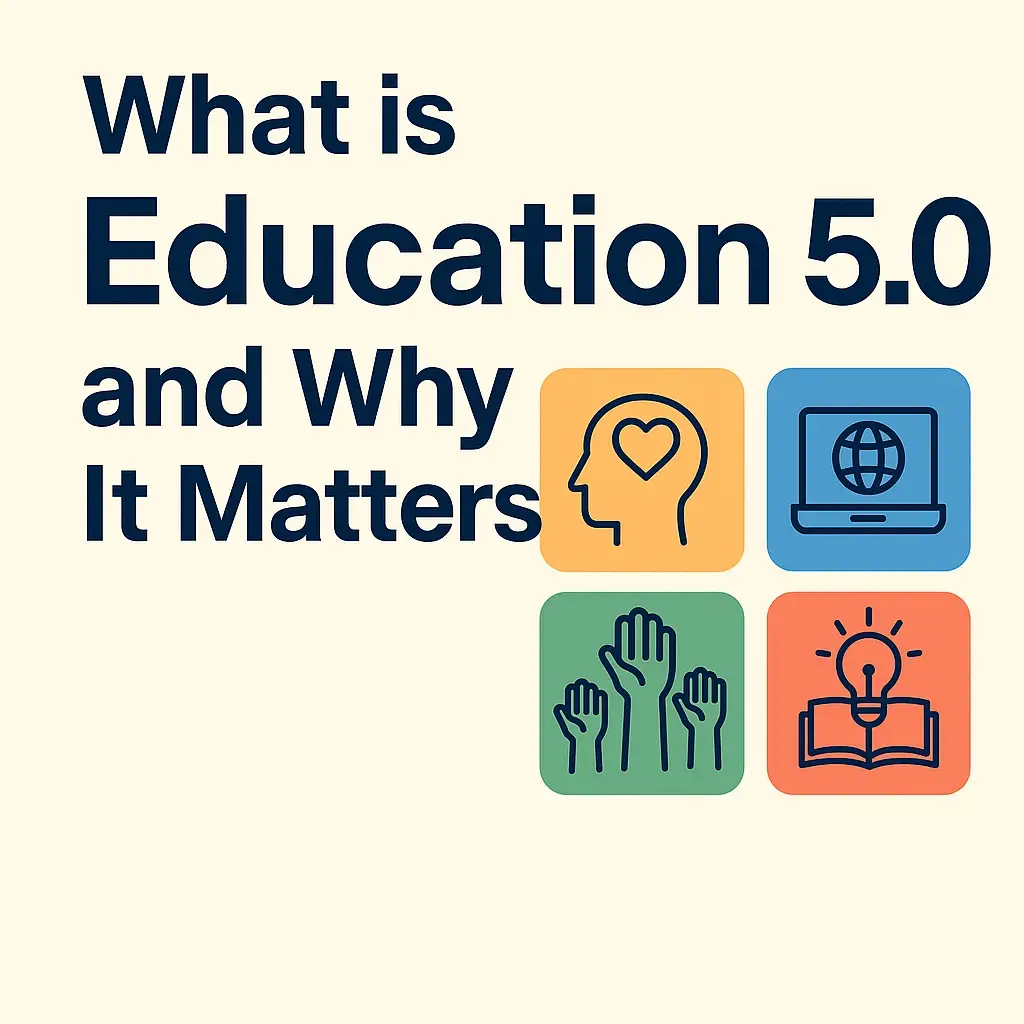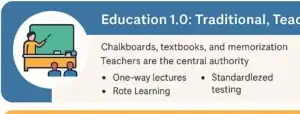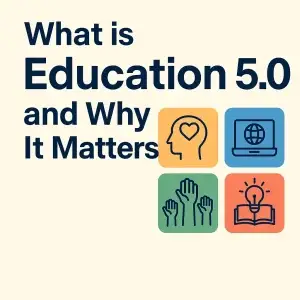
What is Education 5.0 and Why It Matters
Introduction
The global landscape of education is evolving in response to rapid technological advancement, social change, and global challenges. From the industrial model of Education 1.0 to the digital revolution of Education 4.0, we are now entering a new era: Education 5.0. This phase is defined not solely by technological integration but by its human-centric, ethical, and sustainable approach to learning and development.
The Evolution of Education: A Brief Timeline
- Education 1.0 – Teacher-centered, oral, and rote-based learning.
- Education 2.0 – Standardized, textbook-driven learning for industrial needs.
- Education 3.0 – Digital resources, computers, and internet integration.
- Education 4.0 – AI, automation, and personalized digital learning.
- Education 5.0 – Human-centered, values-based, and sustainability-focused education.
Key Principles of Education 5.0
- Human-Centric Learning
- Values-Driven Curriculum
- Sustainability and Global Citizenship
- Collaborative Technology Use
- Life-Readiness, Not Just Job-Readiness
Why Education 5.0 Matters Today
- Shifting workforce demands
- Addressing student mental health
- Fostering purpose and meaning
- Developing resilient, future-ready learners
Real-World Examples and Implementation
Countries like Finland and Singapore are already incorporating Education 5.0 principles through student-centered and interdisciplinary learning. Global bodies like UNESCO emphasize lifelong learning, ethics, and sustainability in educational policy frameworks.
Conclusion
Education 5.0 is not just a pedagogical shift—it’s a paradigm change. It combines knowledge, skills, values, and humanity to produce not only informed individuals but ethical and compassionate leaders for a better world.

